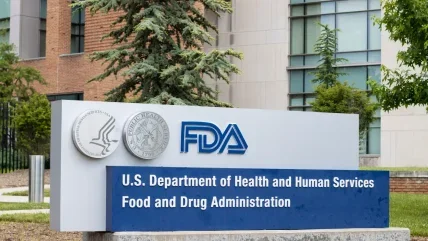
The Trump administration’s recent restructuring at the US Food and Drug Administration (FDA) has resulted in the dismissal of key personnel involved in the evaluation of new medications, reported Reuters, citing former and current FDA sources.
The move, which is part of a broader initiative by President Donald Trump to reduce the federal workforce, could potentially hinder efforts to expedite the availability of promising treatments.
Under the leadership of Secretary of Health and Human Services Robert F. Kennedy Jr., the FDA is expected to lose 3,500 employees. Termination notices started being distributed, although the exact number of those dismissed remains unclear.
Kennedy previously stated that the restructuring aims to centralise support functions such as technology, procurement, human resources, and communications. However, the changes have also led to the removal of senior scientists across key FDA divisions responsible for drugs, vaccines, medical devices, food, veterinary medicine, and tobacco products.
Dr Jesse Goodman, former chief scientist at the FDA and director of Georgetown University’s Center on Medical Product Access, Safety and Stewardship, told the publication: “These deep cuts and the loss of experienced leadership at virtually all the major centres that regulate the safety of food, drugs, devices is quite high risk.”
“If there is a safety issue with blood or a medical product or some vaccines, it’s very important that you detect that and respond to it quickly, and it takes people who really understand it to do that,” Goodman added.
Additionally, the layoffs have affected staff managing records for new product applications within divisions overseeing biotechnology therapies, medical devices, veterinary medicine, and tobacco products, as confirmed by three sources.
The office responsible for organising travel for FDA inspectors, who ensure compliance with safety standards on production lines, has also been impacted, according to the same sources.
While employees directly involved in reviewing new products have largely been retained, four sources indicated that some reviewers are considering employment opportunities outside the agency due to the upheaval.
This situation raises concerns about the availability of reviewers for scheduled meetings with pharmaceutical and device companies, given the potential need for them to recuse themselves from evaluating products from industries they may join.






